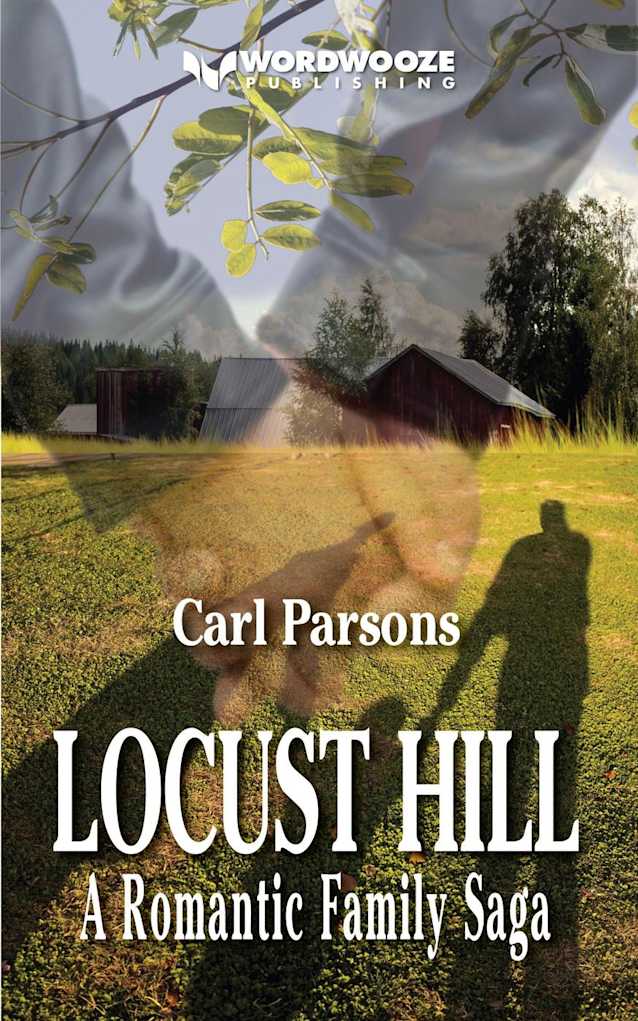Locust Hill
About
City girl falls in love with country boy in the family saga Locust Hill. Carl Parsons’ third novel details the struggles of an independent, small acreage farm family in the Mid-Ohio Valley of West Virginia. With wife Cassandra as the narrator, the novel recounts her discovery of a different world just outside her West Virginia hometown, a quaint rural village where people survive and maintain their community by helping one another. During their life together, Cassandra learns that her husband, Jim Russell, is the very embodiment of this spirit.
Praise for this book
5 STAR REVIEW FOR
LOCUST HILL: A ROMANTIC FAMILY SAGA
City girl meets country boy and falls in love, both with the boy and the place, Locust Hill—a place where people survive and maintain their community by helping one another.
“There is something very powerful about a story that takes you to a certain place and time, and this one does that so well. It takes place in the Mid-Ohio Valley in West Virginia and catches the essence of country life in a way that feels both old and new,” says reviewer Anette Engel. “This book is a beautifully written tribute to resilience, love, and the kind of life that is built with patience, sacrifice, and an unwavering commitment to something bigger than oneself. It lingers in the mind long after the final page.”
Read the full review at this link:
https://www.thebookrevue.com/post/locust-hill-a-romantic-family-saga
And buy the book from your favorite book retailer at this link:
https://books2read.com/u/3GOwnd.
Locust Hill is a nostalgic, slow-burning romantic saga set in the rural landscape of West Virginia during the 1960s. Told through the voice of Cassandra “Cassie” Clark, a popular high school girl with big dreams and big-city expectations, the novel traces her unlikely love story with James Russell, a quiet, philosophical young farmer. What begins as a tutoring session in trigonometry unfolds into a deeply layered exploration of family, resilience, sacrifice, and the quiet kind of love that grows deeper with time. It's a coming-of-age tale just as much as it is a love story—rooted in soil, memory, and legacy.
On the surface, it reads like a wholesome farm story, but Parsons writes with such clarity and charm that I was hooked by the end of chapter one. The first few pages in which Cassie describes her surprise attraction to the serious, slide-rule-toting Jim are full of heart and humor. The whole “fertility goddess” conversation made me laugh and then think way harder than I expected. Jim’s quiet wisdom stuck with me. He’s not just a farmer, he’s a philosopher with dirt under his fingernails.
One of the most touching and vivid sections is when Cassie visits Jim’s family farm. The way she describes the house, the land, the compost piles, the ducks, the guineas, it’s more than just descriptive. It’s loving. You can feel her world shifting as she walks through the barn or sees the warmth of Jim’s mother. Parsons doesn’t romanticize farm life. He honors it. He shows how the land, like love, takes patience, work, and guts. There’s a part where Jim says the garden “informs the fields,” and I had to pause and take that in. It’s a beautiful metaphor for how small efforts, like relationships, can grow into something sustaining.
Some chapters drift like a slow river, and if you're expecting non-stop action, this might feel a little sluggish. But that’s kind of the point. The pacing mirrors the farm life it describes—seasonal, methodical, purposeful. There’s real tension beneath the calm, especially when the story veers into environmental issues in later chapters. Still, it's the romance that held me. The way Jim proposes at the creek, under budding trees, made my heart melt. It’s tender without being sappy, and just the right amount of awkward.
I’d recommend Locust Hill to anyone who loves character-driven stories, rich settings, and quiet, meaningful drama. If you enjoy books where not much “happens” but everything matters, you’ll feel at home here. It's especially perfect for readers who miss the days when love stories were more about soul than spark. This isn’t a whirlwind romance, it’s a slow build that feels earned. Like a good harvest after a long, hard season.
